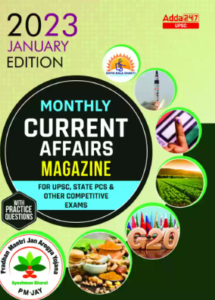Paper: 1
Physical Geography:
Geomorphology: Endogenous and exogenous forces that affect how landforms develop; the history of how the earth’s crust formed; the basics of geomagnetism; internal physical characteristics of the earth; Plate tectonics; continental drift; isostasy; geosynclines; recent perspectives on creating mountains; earthquakes and tsunamis, vulcanicity; concepts of landscape development and geomorphic cycles; Chronology of denudation, channel morphology, erosion surfaces; slope construction; Environmental, economic, and geohydrological aspects of applied geomorphology.
Climatology: The world’s temperature and pressure belts; Earth’s whole thermal budget; Circulation of the atmosphere; stability and instability of the atmosphere. local and planetary winds; jet streams and the monsoon; air masses and frontogenesis, cyclones in the tropics and at latitudes, precipitation distribution and kind; climate and the weather; the classification of global climates by Koppen, Thornthwaite, and Trewartha; cycle of water; climate change globally and the role and response of precipitation; weather and climate; the classification of world climates by Koppen, Thornthwaite, and Trewartha; cycle of water; Urban climate, applied climatology, and global climatic change are some of the topics covered.
Oceanography includes the temperature and salinity of the oceans, as well as the bottom topography of the Atlantic, Indian, and Pacific Oceans. Budgets for heat and salt, ocean deposits; currents, tides, and waves; Biological, mineral, and energy resources found in the ocean; Sea level changes, coral reefs, coral bleaching, the law of the sea, and marine pollution.
Biogeography includes the following concepts: the origin of soils, soil classification and distribution, soil profile, soil erosion, degradation, and conservation. factors that affect the distribution of plants and animals globally; issues related to deforestation and conservation efforts; Agroforestry, social forestry, wildlife, and significant gene pool centres.
Environmental Geography: Ecological principles; Human ecological adaptations; Man’s impact on the environment and ecology; ecological shifts and imbalances on a regional and global scale; the management and preservation of ecosystems; deterioration, management, and conservation of the environment; sustainability and biological diversity; environmental regulation environmental risks and corrective actions; legislation and environmental education.
Human Geography:
Perspectives in Human Geography : Areal distinction, regional synthesis, dichotomy and dualism, environmentalism are some perspectives on human geography. radical, behavioural, human, and welfare methods; the quantitative revolution; locational analysis; radical changes; religions, languages, and secularisation; world’s cultural areas; Index of human progress.
Economic Geography: Global economic development: measurement and issues; allocation of resources worldwide; energy crisis; growth constraints; Types of agricultural regions, agricultural inputs, and productivity across the world; issues with nutrition and food; Security of food; famine: origins, impacts, and solutions; Global industries: geographic patterns and issues; patterns of international trade.
Population and Settlement Geography: World population growth and distribution; demographic characteristics; causes and effects of migration; the terms “over-population,” “under-population,” and “optimum population;” world population issues and strategies, population theories quality of life and social wellbeing; Social capital as population.
Rural settlement types and patterns: environmental concerns in rural communities; urban settlement hierarchy; concepts of primate cities and the rank-size rule; functional grouping of settlements; urban influence zone; rural and urban outskirts satellite cities Sustainable city development; urbanization’s issues and solutions.
Concept of a region: different sorts of regions and regionalization techniques; growth centres and growth poles; regional imbalances; considerations of the environment in regional planning; and planning for sustainable development.
Models, Theories, and Laws in Human Geography: Malthusian, Marxian, and Demographic Transition Models; System Analysis in Human Geography; The Central Place theories of Christaller and Losch; the agricultural location model of Von Thunen; the industrial location model of Weber; and the stages of growth model of Rostov. international border and frontier rules; the heartland and rimland hypotheses.
Read Also: https://upscpreparationonline.com/geography-optional-detailed-syllabus-for-upsc-mains/



